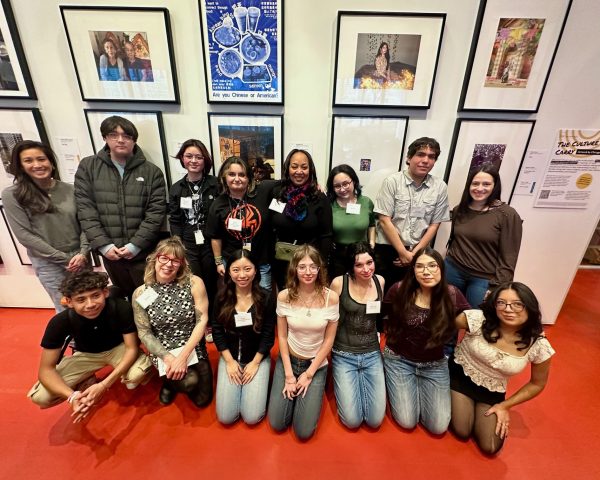The name of the game is pronunciation
At a school as diverse as Lane, you would think that teachers would be accustomed to pronouncing different names. However, why is it that having a non-anglo or uncommon name is still struggle at school?
From Maureen (Mo-reen) to Yuri (Yoo-ree) to my name, Juanairis (Hua-na-ear-reese), there is a struggle with teachers mispronouncing names.
With regards to names, culture and religion as well as honoring a person or event take the lead for main reasons why people are named. Names essentially transform into somebody’s key for the social world in terms of communication.
Six random students around Lane were asked how often people mispronounce their name, on a scale from one to ten, one being rare and ten being very often. Four students reported a rating of nine.
The occurrence of name mispronunciation can be linked to different accents, people’s native tongue and its rules. Nguyen Hua (Win Who), Div. 883, for example, spells his first name like a common Vietnamese last name, Nguyễn. In reality, his name is Nguyên; the difference is the pronunciation and accent marks, which do not exist in the English language.
Rita Kohli, an assistant professor of education at the University of California, told NEA Today that mispronouncing students’ names can have a deeper impact than what we might suspect.
“When the child enters school and teachers — consciously or not — mispronounce, disregard or change the name, they are in a sense disregarding the family and culture of the students as well,” Kohli said.
According to Kohli, name mispronunciation is also linked to racism stemming from various current and historical events. For example, historically, mispronouncing names has been a form of taunting and demeaning a person.
Sara Wicht, senior manager of teaching and learning for TeachingTolerance.com, wrote in a post that each person has a name, and each name, a story. Some names are one way or another linked to the division of current events or national history.
The National Center for Education Statistics (NCES) reported that minority students are less likely to have a teacher with whom they share a cultural background, since 82 percent of the teacher population in 2014 was white.
“I had this one teacher that insisted on pronouncing my name ‘the correct way,’ which was the English pronunciation, and I went to a largely Hispanic school where most students spoke Spanish,” Monserrat Magaña (Mon-sir-raut Ma-ga-gna), Div. 876, said. “They would pronounce my name the Spanish way and the teacher would always ‘correct’ them.”
Magaña had a similar experience to that of Hua, who had some teachers in elementary school who did not bother to get his name right.
Ironically, others who had better luck with their name pronunciation, had a troublesome time tending to two names. In other words, having a short name anyone can refer to usually happens to be a short version of the whole name.
At school, I go by Iris, to make communication easier and to avoid hearing my name being butchered; however, I do make an exception when I know teachers can correctly pronounce my whole name — Juanairis — a name that has Spanish and Greek roots. In English, it is pronounced as Hua-na-ear-reese, which is a big difference from the actual spelling.
Today, name mispronunciation is receiving more attention. An organization called “My Name, My Identity” encourages educators nationally to respect their students’ names and to do whatever it takes to learn the correct pronunciation.
The movement began as a way to raise awareness of the long-term effects that students suffer when associated with the wrong pronunciation of their name, in many cases causing anxiety.
“Students often felt shame, embarrassment and that their name was a burden,” Kohli told NEA Today. “They often began to shy away from their language, culture and families.”
Some universities are taking steps to address this issue. Stanford recommends that their professors ask students for a recording of their name pronunciation before the semester even begins, according to Stanford News.
Tending to the issue won’t entirely prevent mispronunciations from happening. Rather, awareness can decrease the occurrence of name mispronunciation and help students and teachers communicate without offending anybody.
“It is important for teachers to get on a personal level with students,” Hua said. “The name is the first part of that.”
Your donations directly fund the Lane Tech student journalism program—covering essential costs like website hosting and technology not supported by our school or district. Your generosity empowers our student reporters to investigate, write, and publish impactful stories that matter to our school community.
This website is more than a publishing platform—it's an archive, a research tool, and a source of truth. Every dollar helps us preserve and grow this resource so future students can learn from and build on the work being done today.
Thank you for supporting the next generation of journalists at Lane Tech College Prep!

Juanairis is a current junior, with a passion for reading and binge watching online shows. She is hoping to one day travel to the Scandinavian countries...



